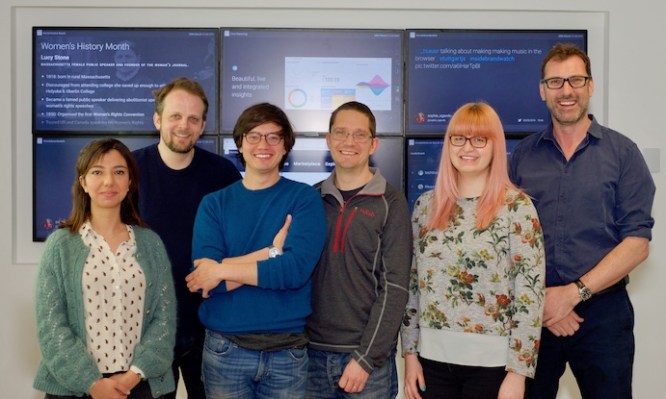In the past few years it’s become increasingly evident that while social media was a fantastic new way to get into the minds of people and understand what they thought in order to sell them things, you couldn’t just rely on the blathering of millions of people. You also had to literally ask them questions. At the darker end of the spectrum, this was used by the likes of Cambridge Analytica to first poll questions, then use the data to target audiences for dark political purposes. At the lighter end, it’s a method used every day by legitimate brands and ad agencies. But until now, most social listening agencies and most polling companies plowed different sectors of the tech industry. The news that a major social intelligence company is acquiring a research platform is an indication that these two worlds are about to come together.
Brandwatch, a leading social intelligence company, has acquired London-based SaaS research platform Qriously. Although terms have not been disclosed, the notion is clear: to fuse modern market research methods with social media listening and analytics. Qriously had previously raised $6.2 million while Brandwatch has raised $65 million from European VCs Nauta Capital, Highland Europe and Partech.
Brandwatch also needs the tools Qriously has in order to differentiate itself from the legacy social listening players, thus meaning its clients won’t have to go to both a market research firm and a social listening agency.
The acquisition marks a continuation of Brandwatch’s roll-up of services that add to its offering. The October 2018 merger between Brandwatch and Crimson Hexagon created a business with around $100 million in recurring annual revenues.
The Qriously acquisition will add first-party quantitative research to Brandwatch’s total pool of brand and consumer insight and enables its customers to proactively dig deeper into their online research by launching targeted surveys, with global reach and near-immediate results.
The innovation Qriously made was to turn mobile ad-networks into a distribution platform for polling and quizzes. This hadn’t previously been done extensively, and enabled it to, for example, predict the results of the last U.S. election.
Qriously has developed a next-generation technology to access, via mobile ad networks in particular, more than 2 billion devices all over the world in real time. Clients include Spotify, Coinbase and P&G.
“It’s not often you meet a group of people as fresh and innovative as the Qriously team who have built a deep, technically strong solution to a problem that is on your own roadmap,” said Giles Palmer, co-founder and CEO of Brandwatch. “We’ve never met such a team who saw the world the way we do and want to join up to create something really new, but that’s what happened with Qriously.”
“The future of market research is 100 percent combining different data types,” said Christopher Kahler, co-founder and CEO of Qriously. “Prompted survey and unprompted social data surface different types of insights, and looking at them together gives you a 360-degree picture.”
